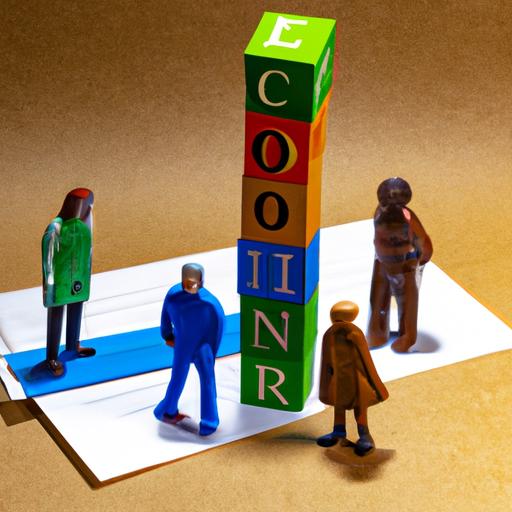Introduction
Do you find yourself constantly making excuses to avoid social gatherings? Do you prefer the comfort of solitude over engaging with others? If so, you may have wondered why you avoid socializing. The act of socializing refers to interacting and connecting with individuals in various settings. It plays a crucial role in personal growth and overall well-being. In this article, we will delve into the reasons behind this avoidance and explore the importance of socializing for our lives.
Definition of Socializing
Socializing encompasses a wide range of activities that involve interacting with others, such as engaging in conversations, attending events, joining clubs, or participating in group activities. It is a fundamental aspect of human nature, as we are inherently social beings. By engaging in social interactions, we establish connections, share experiences, and foster a sense of belonging within our communities.
Importance of Socializing for Personal Growth and Well-being
Socializing goes beyond mere small talk and social niceties. It plays a significant role in our personal growth and well-being. When we interact with others, we gain valuable communication skills, learn to express ourselves effectively, and develop empathy for different perspectives. These social interactions provide opportunities for personal and professional growth, as they expose us to diverse ideas, knowledge, and experiences.
Furthermore, socializing contributes to our emotional well-being. It helps combat feelings of loneliness and isolation, which can have detrimental effects on our mental health. By connecting with others, we create a support system that offers understanding, encouragement, and a sense of belonging. Socializing also allows us to celebrate achievements, share joys, and seek comfort during challenging times.
Brief Mention of the Keyword “why do i avoid socializing“
Now, let’s address the core question: why do some individuals avoid socializing? The reasons vary from person to person and can stem from psychological factors, such as social anxiety, introversion, negative past experiences, or low self-confidence. Understanding these underlying factors is crucial in finding ways to overcome the fear of socializing and reap the benefits it offers.
In the following sections, we will explore these psychological factors in depth and delve into the impact of avoiding socializing. We will also provide insights and strategies to help you overcome this avoidance and embrace the enriching experiences socializing can bring. So, let’s dive deeper into the reasons behind avoiding social interactions and discover how we can overcome these barriers together.
Benefits of Socializing
A. Enhanced Communication Skills
Socializing provides a platform to hone our communication skills. Engaging in conversations with others allows us to practice active listening, articulate our thoughts, and express ourselves effectively. Through interactions, we learn to adapt our communication style to different individuals and situations, improving our ability to convey ideas, negotiate, and collaborate.
B. Increased Self-Confidence and Self-Esteem
By engaging in social interactions, we gradually build our self-confidence and self-esteem. Each successful conversation or connection made boosts our belief in our abilities and worth. These positive experiences help us overcome self-doubt and develop a stronger sense of self. As we become more comfortable engaging with others, our confidence extends beyond social settings and impacts various aspects of our lives.
C. Building Meaningful Relationships
One of the most significant benefits of socializing is the opportunity to build meaningful relationships. By connecting with others on a deeper level, we create bonds based on shared interests, values, and experiences. These relationships provide emotional support, companionship, and a sense of belonging. Meaningful connections enhance our overall well-being and contribute to our happiness and fulfillment.
D. Expanding Professional Networks
Socializing is not limited to personal relationships; it also plays a crucial role in professional growth. Engaging with colleagues, attending industry events, and participating in networking activities allows us to expand our professional networks. These connections open doors to new opportunities, collaborations, and mentorship. Building a robust professional network can enhance career prospects, provide valuable insights, and foster professional development.
E. Learning from Different Perspectives
When we socialize, we are exposed to a diverse range of perspectives, experiences, and ideas. Interacting with individuals from different backgrounds, cultures, and walks of life broadens our horizons and challenges our preconceived notions. By embracing these diverse perspectives, we gain a deeper understanding of the world and cultivate empathy and tolerance. Learning from others’ experiences enriches our own personal growth and widens our knowledge base.
In the upcoming sections, we will explore the psychological factors that contribute to avoiding socializing and delve into the impact of this avoidance on our well-being. Through understanding and addressing these factors, we can overcome our reluctance and embrace the multitude of benefits that socializing offers. Let’s explore further and discover how we can navigate through these challenges together.
Psychological Factors Contributing to Avoiding Socializing
A. Social Anxiety and Fear of Judgment
Social anxiety, a common psychological factor, can significantly contribute to avoiding socializing. People with social anxiety experience intense fear and discomfort in social situations, often worrying about being judged or embarrassed. This fear can be paralyzing, causing individuals to avoid social gatherings altogether. The fear of judgment can make simple interactions feel overwhelming, leading to isolation and missed opportunities for connection.
B. Introversion and Preference for Solitude
Introversion, a personality trait, is characterized by a preference for solitude and a need to recharge in quieter settings. While introverts may enjoy meaningful connections with others, they also require alone time to restore their energy. This preference for solitude can sometimes lead to avoiding socializing, as introverts may find large gatherings draining and overwhelming. It’s important to note that introversion is not the same as shyness or social anxiety, although they can coexist.
C. Negative Past Experiences
Negative past experiences can have a lasting impact on one’s willingness to socialize. Traumatic events, instances of bullying, or rejection can create deep emotional scars that make individuals hesitant to engage with others. These past experiences can instill a fear of vulnerability and the belief that social interactions will lead to pain or disappointment. Overcoming these experiences often requires healing and building trust in oneself and others.
D. Lack of Self-Confidence or Low Self-Esteem
A lack of self-confidence or low self-esteem can act as barriers to socializing. Individuals who struggle with their self-worth may fear judgment, worry about not being interesting or likable, or feel inadequate in social settings. These negative self-perceptions can cause individuals to withdraw and avoid social interactions, perpetuating a cycle of isolation and reinforcing their insecurities.
Understanding these psychological factors is essential in addressing and overcoming the avoidance of socializing. In the following sections, we will explore the impact of avoiding socializing and provide strategies to help build confidence, navigate social situations, and embrace the benefits of connecting with others. Remember, you are not alone in these feelings, and there are steps you can take to overcome these barriers and cultivate a fulfilling social life.
Impact of Avoiding Socializing
A. Isolation and Loneliness
When we consistently avoid socializing, we inadvertently isolate ourselves from meaningful connections and experiences. The lack of social interactions can lead to feelings of loneliness, even in the presence of others. Human beings thrive on social connections, as they provide us with a sense of belonging and support. Without these connections, we may feel disconnected, leading to a decline in our overall well-being.
B. Negative Effects on Mental Health
Avoiding socializing can have detrimental effects on our mental health. Social interactions play a vital role in maintaining emotional stability and reducing stress. They provide an outlet for self-expression, emotional support, and the opportunity to share our experiences. By isolating ourselves, we miss out on these important aspects, which can contribute to increased levels of anxiety, depression, and overall poor mental health.
C. Missed Opportunities for Personal and Professional Growth
Socializing not only enhances our personal lives but also opens doors for professional growth. By avoiding social interactions, we miss out on valuable opportunities to network, build connections, and expand our professional circles. Engaging with others allows us to exchange ideas, seek mentorship, and gain valuable insights into different industries or career paths. Consequently, avoiding socializing can limit our potential for personal and professional advancement.
D. Difficulty in Forming and Maintaining Relationships
Human relationships are built upon social interactions. By avoiding socializing, we may find it challenging to form new relationships or maintain existing ones. Meaningful connections require consistent effort and engagement. When we withdraw from social interactions, we miss out on the chance to build rapport, establish trust, and cultivate deep connections. This can lead to a sense of isolation and hinder our ability to foster long-lasting relationships.
In the next section, we will explore strategies to overcome the fear of socializing and embrace the benefits it brings to our lives. By addressing the impact of avoiding social interactions, we can better understand the importance of stepping out of our comfort zones and actively engaging with others. Let’s dive into the ways we can overcome these barriers and unlock the immense potential that socializing holds.
Overcoming the Fear of Socializing
A. Recognizing and Understanding Personal Barriers
The first step in overcoming the fear of socializing is to recognize and understand the personal barriers that contribute to this avoidance. Reflect on your experiences and emotions to identify any underlying fears or insecurities that may be holding you back. Are you afraid of being judged or rejected? Do you feel anxious in social situations? By acknowledging these barriers, you can begin to address them effectively.
B. Seeking Professional Help or Therapy
If your fear of socializing significantly impacts your daily life and well-being, consider seeking professional help or therapy. Mental health professionals can provide guidance, support, and coping strategies tailored to your specific needs. They can help you navigate through your fears, build self-confidence, and develop healthy social skills. Remember, reaching out for assistance is a sign of strength, and there is no shame in seeking professional help.
C. Gradually Exposing Oneself to Social Situations
Overcoming the fear of socializing is a gradual process. Start by exposing yourself to social situations in a controlled and comfortable manner. Begin with small gatherings or events where you feel less overwhelmed. As you become more at ease, gradually challenge yourself by attending larger gatherings or engaging in group activities. Remember, progress takes time, so be patient with yourself and celebrate each step forward.
D. Practicing Self-Care and Building Self-Confidence
Taking care of your mental and emotional well-being is crucial when overcoming the fear of socializing. Practice self-care techniques that help reduce anxiety and promote self-confidence. Engage in activities that you enjoy and that boost your self-esteem. Prioritize self-care rituals such as exercise, mindfulness, and self-reflection. By nurturing yourself, you will develop a stronger foundation from which to approach social interactions.
E. Taking Small Steps Towards Socializing
When it comes to socializing, taking small steps can yield significant results. Start by initiating conversations with people you feel comfortable around, such as close friends or family members. Join clubs or organizations that align with your interests, allowing you to connect with like-minded individuals. Attend social events or workshops focused on personal growth or hobbies. By gradually exposing yourself to social situations, you will become more accustomed to them, and the fear will gradually diminish.
In the next section, we will conclude our exploration of the importance of socializing and provide final thoughts on the benefits and personal growth associated with embracing social interactions.
Conclusion
In conclusion, socializing plays a pivotal role in our personal growth, well-being, and overall quality of life. It offers numerous benefits, including enhanced communication skills, increased self-confidence, and the opportunity to build meaningful relationships both personally and professionally. However, if you find yourself avoiding socializing, it is essential to understand the underlying reasons behind this avoidance.
Psychological factors such as social anxiety, introversion, negative past experiences, or low self-confidence can contribute to the avoidance of social interactions. Recognizing and addressing these barriers is crucial in overcoming the fear of socializing. Seeking professional help or therapy, gradually exposing oneself to social situations, practicing self-care, and building self-confidence can all aid in overcoming these barriers and embracing the enriching experiences socializing provides.
By challenging ourselves to step outside our comfort zones and engage with others, we open doors to new opportunities, ideas, and perspectives. Socializing helps combat feelings of loneliness and isolation, fosters a sense of belonging, and contributes to our emotional well-being. It allows us to form connections, celebrate successes, and find support during difficult times.
So, if you’ve been avoiding socializing, it’s time to take that crucial step forward. Embrace the benefits of social interactions, and remember that growth and self-discovery often lie just outside our comfort zones. By putting yourself out there, you can unlock a world of possibilities and enrich your life in ways you never thought possible.
Let us embark on this journey together, breaking free from the barriers that hold us back, and embracing the power of socializing to create a brighter, more fulfilling future.



